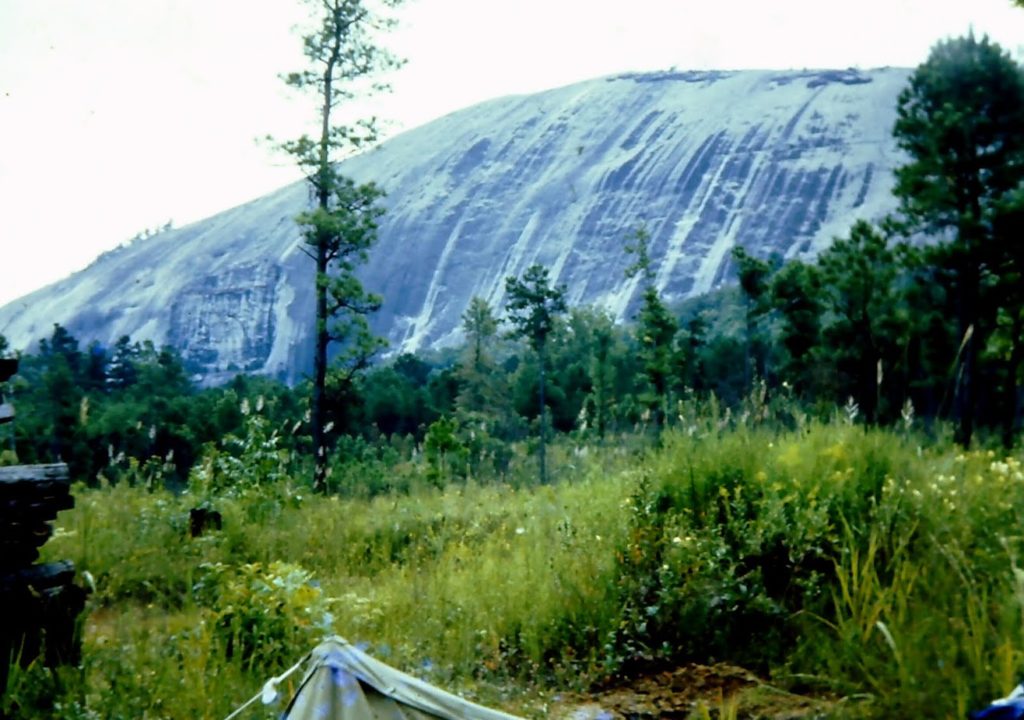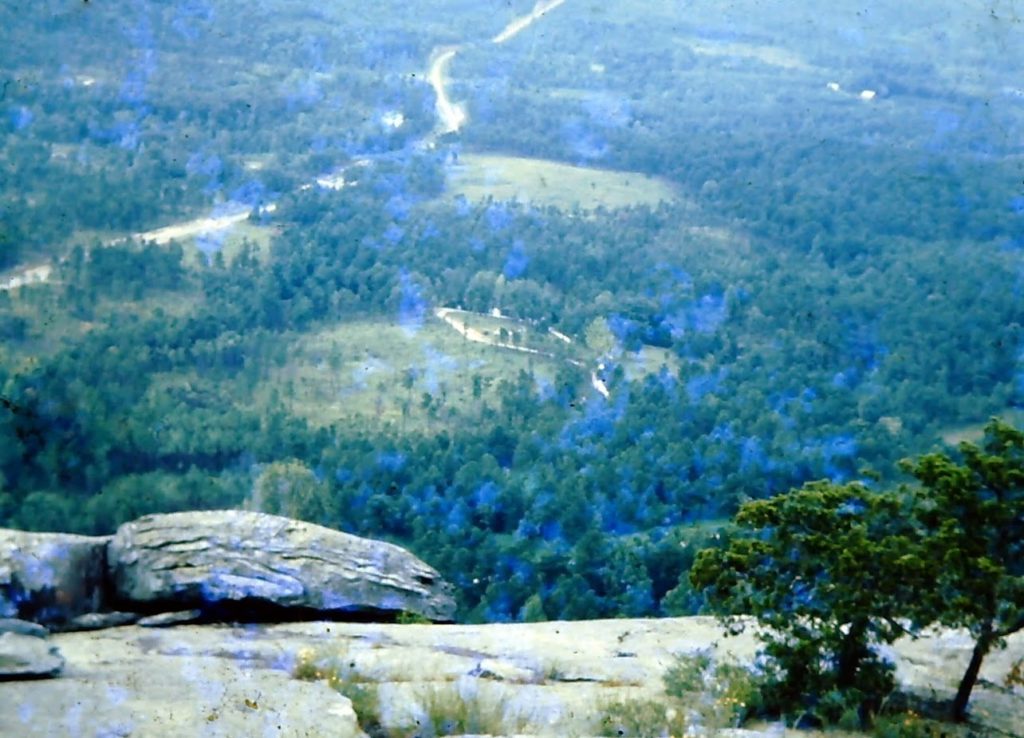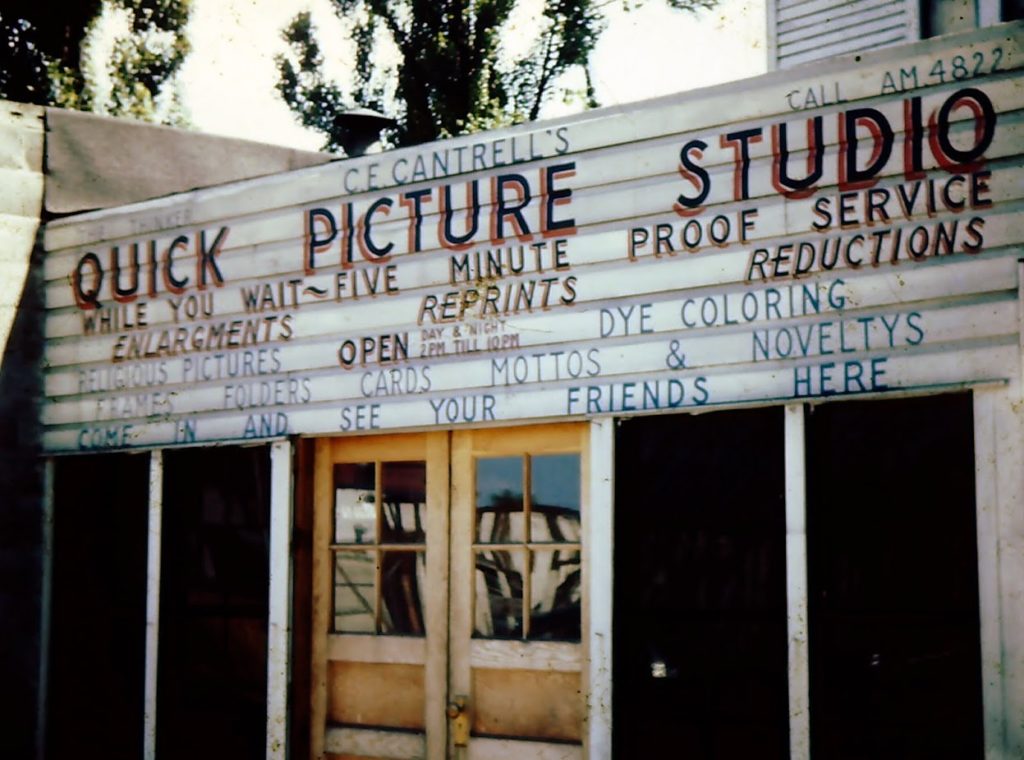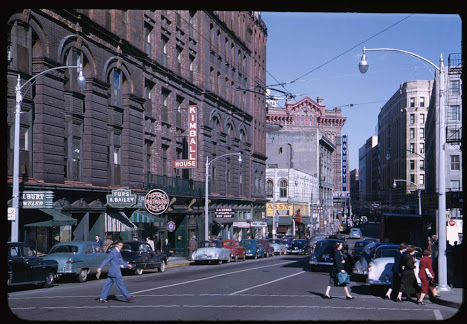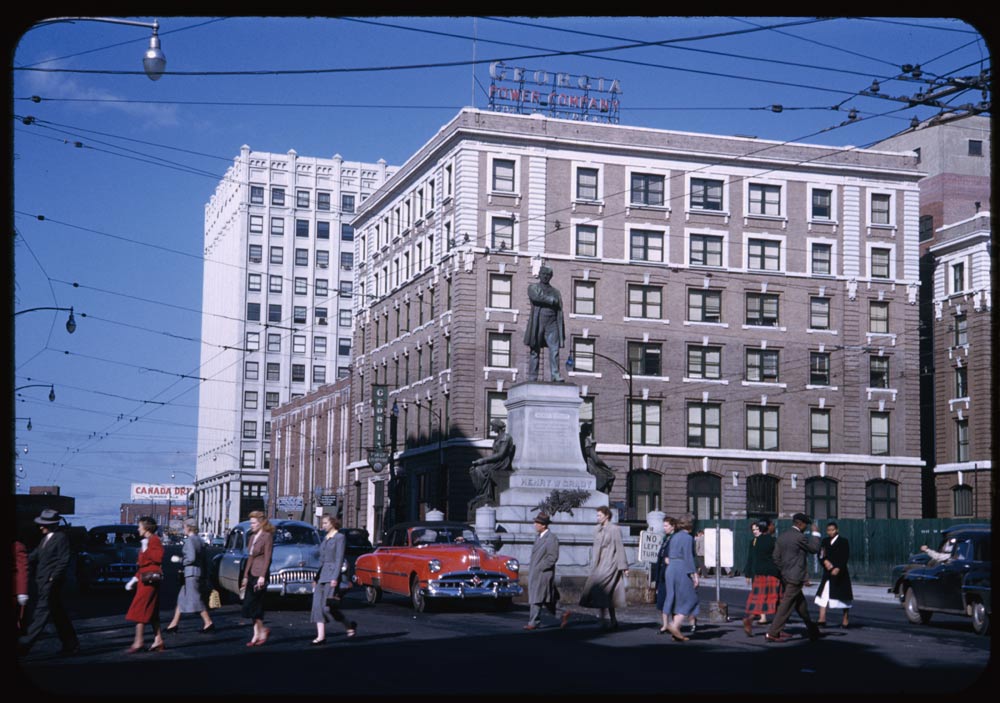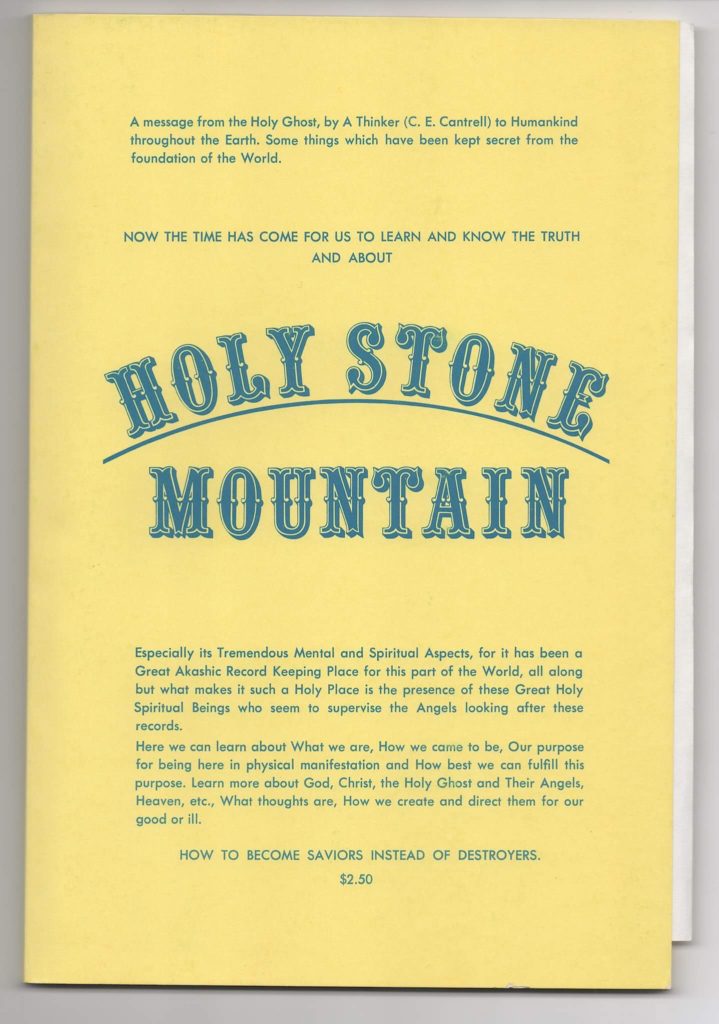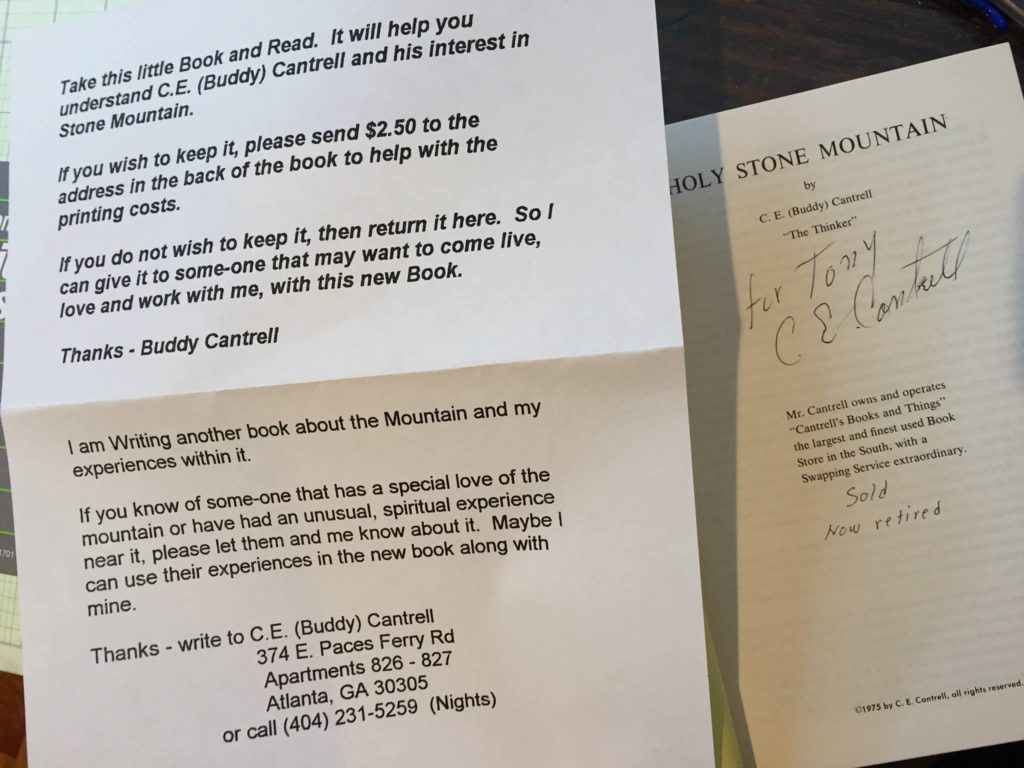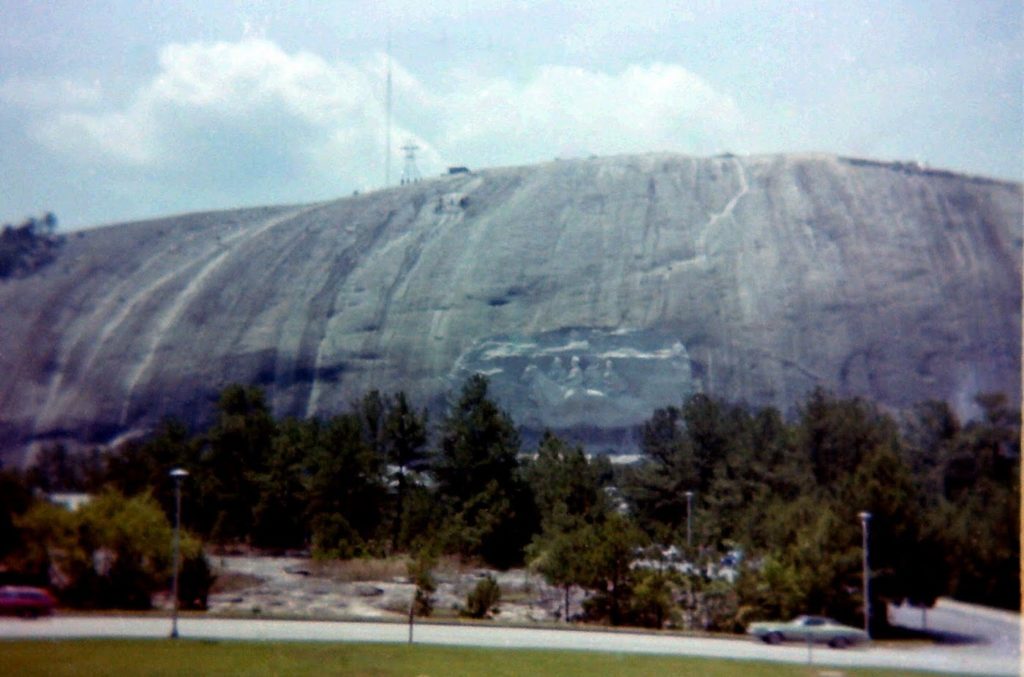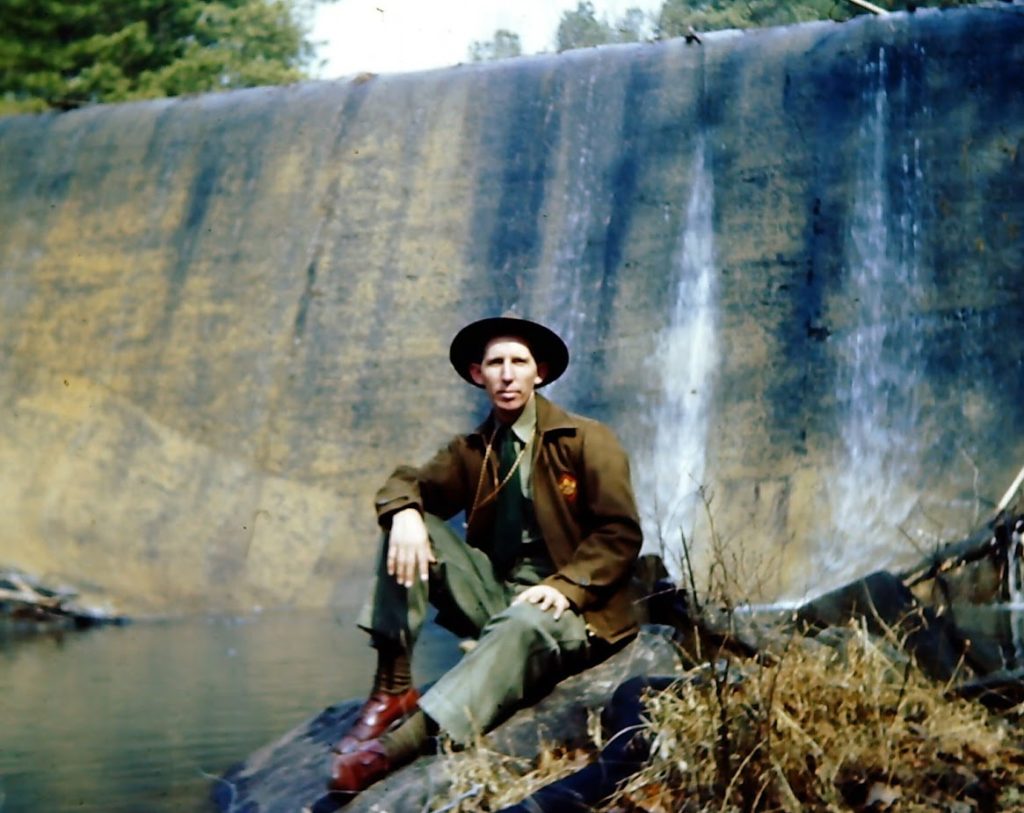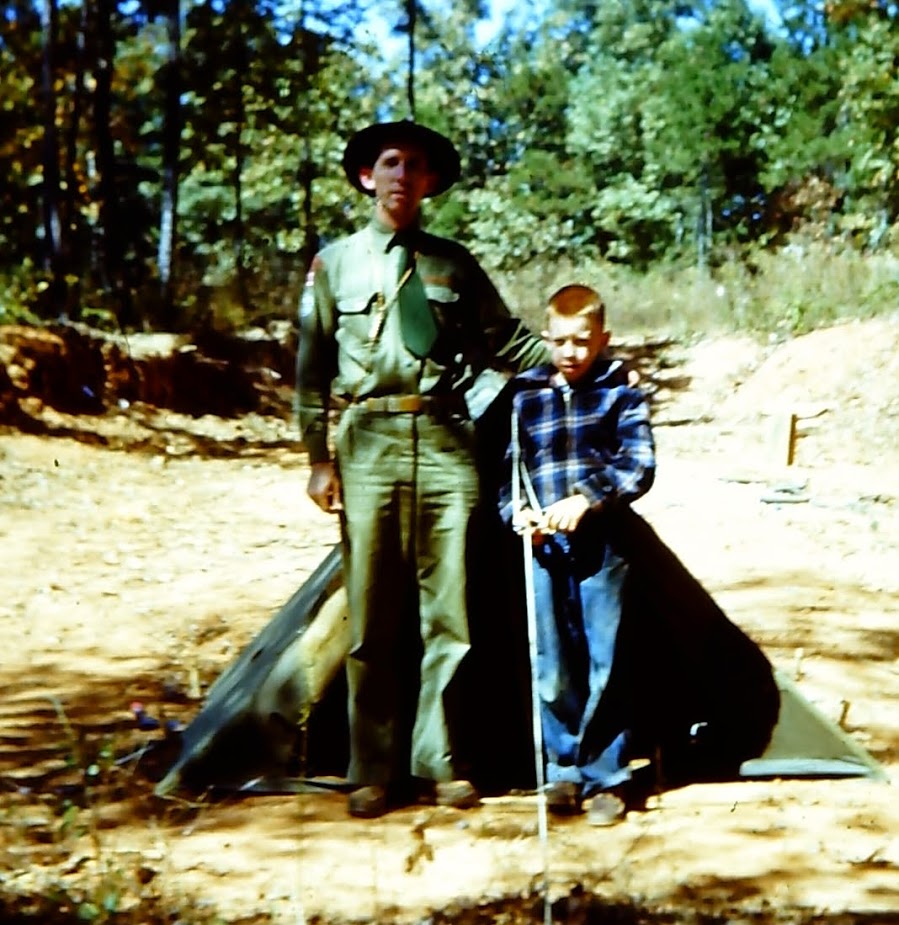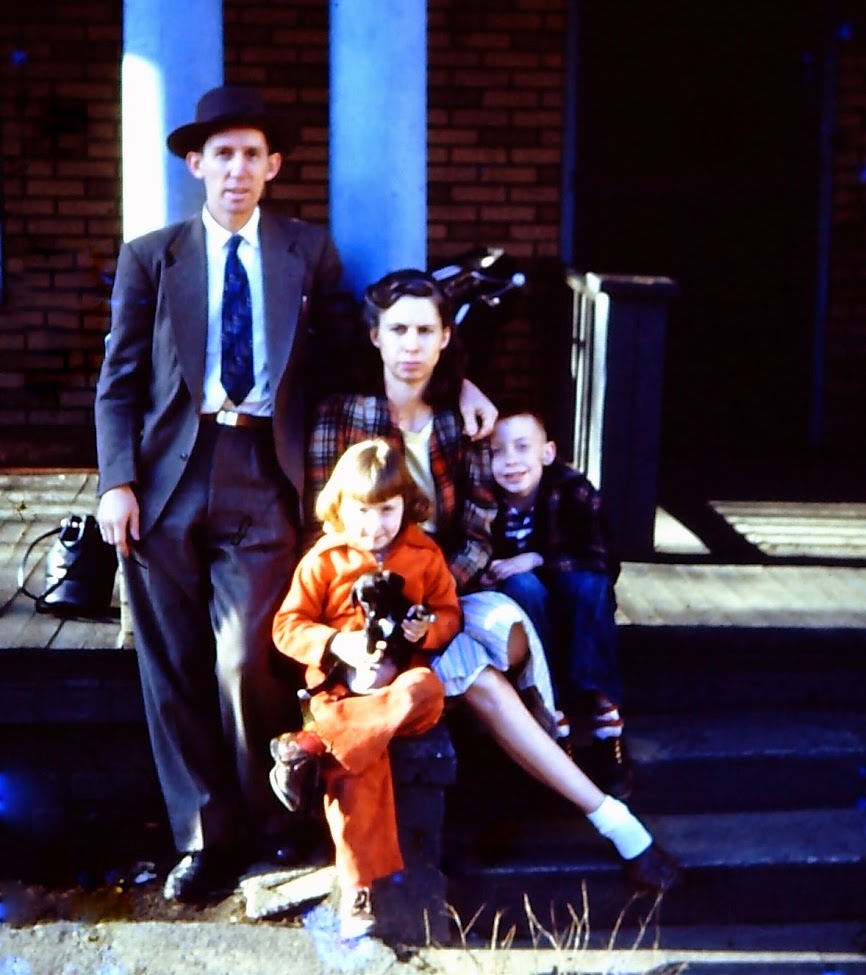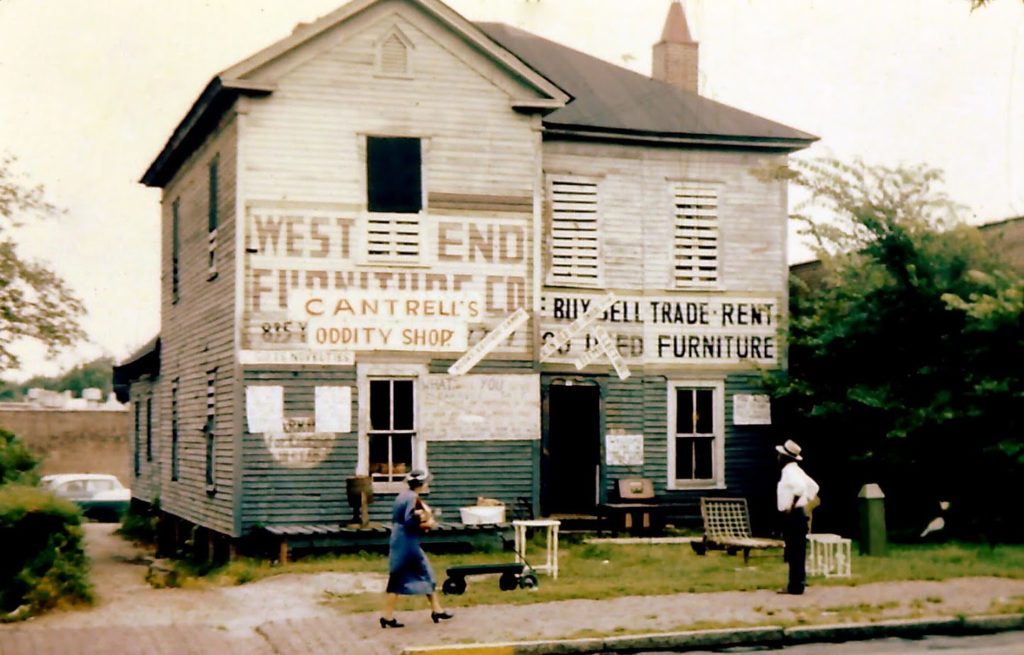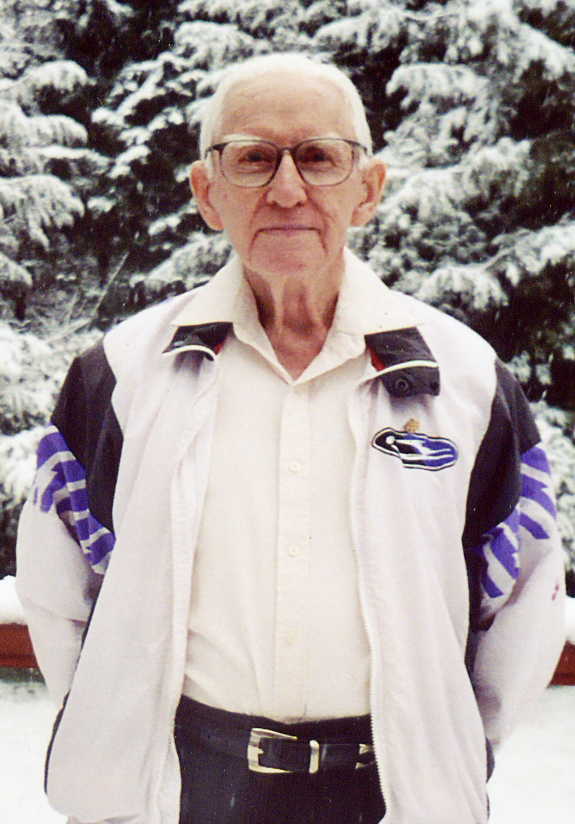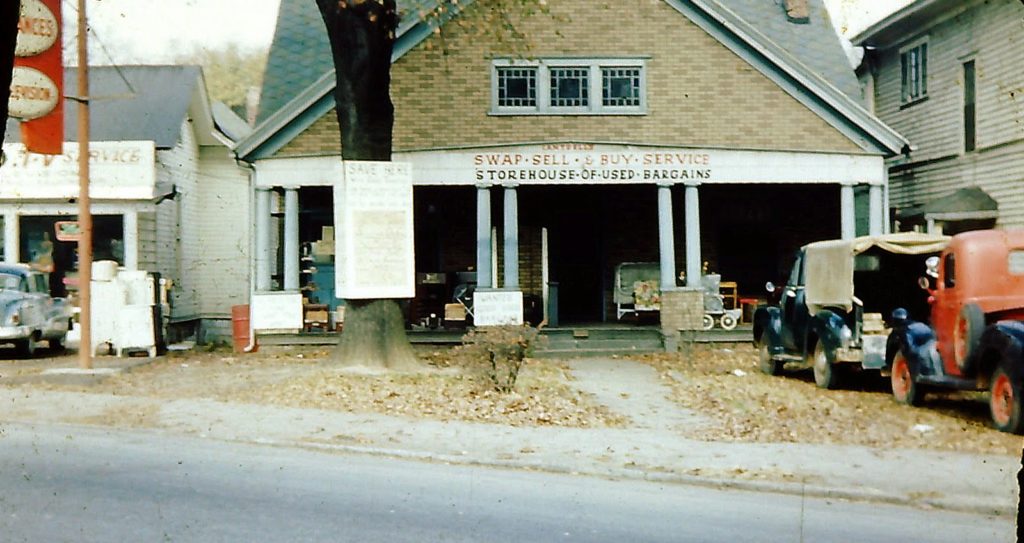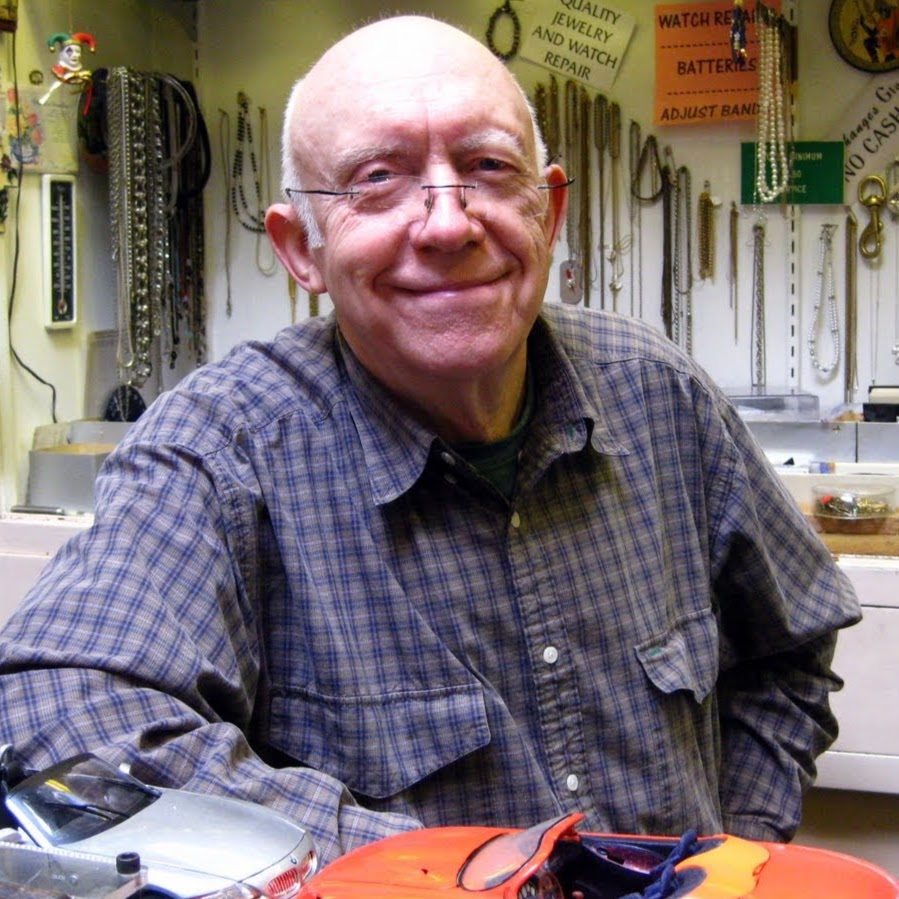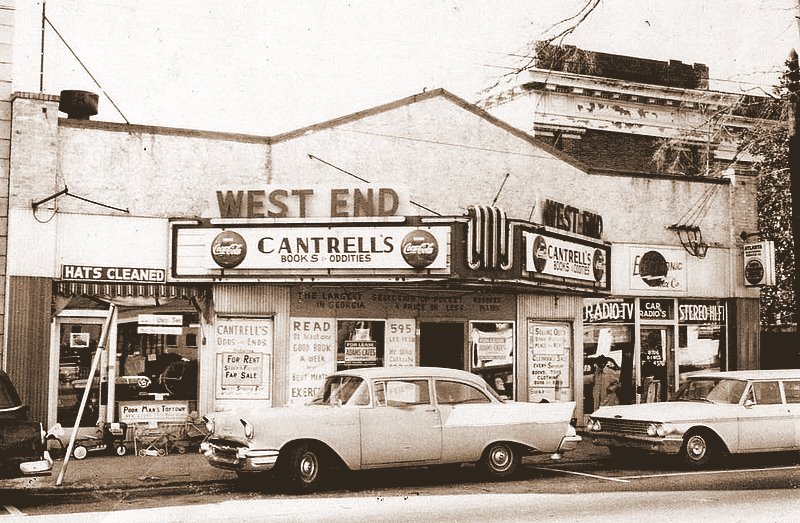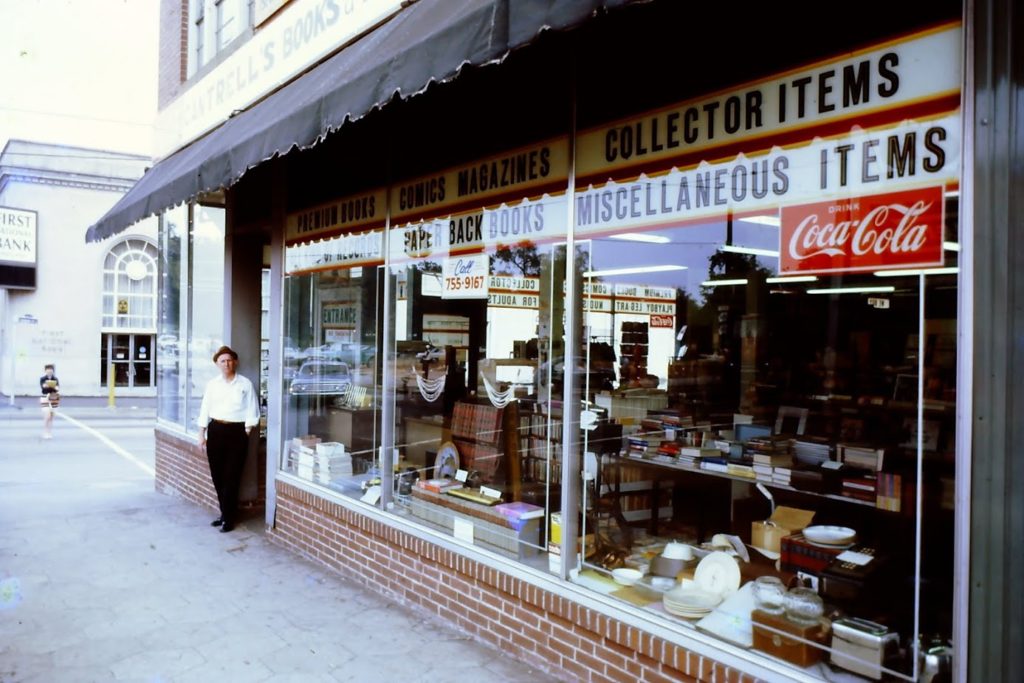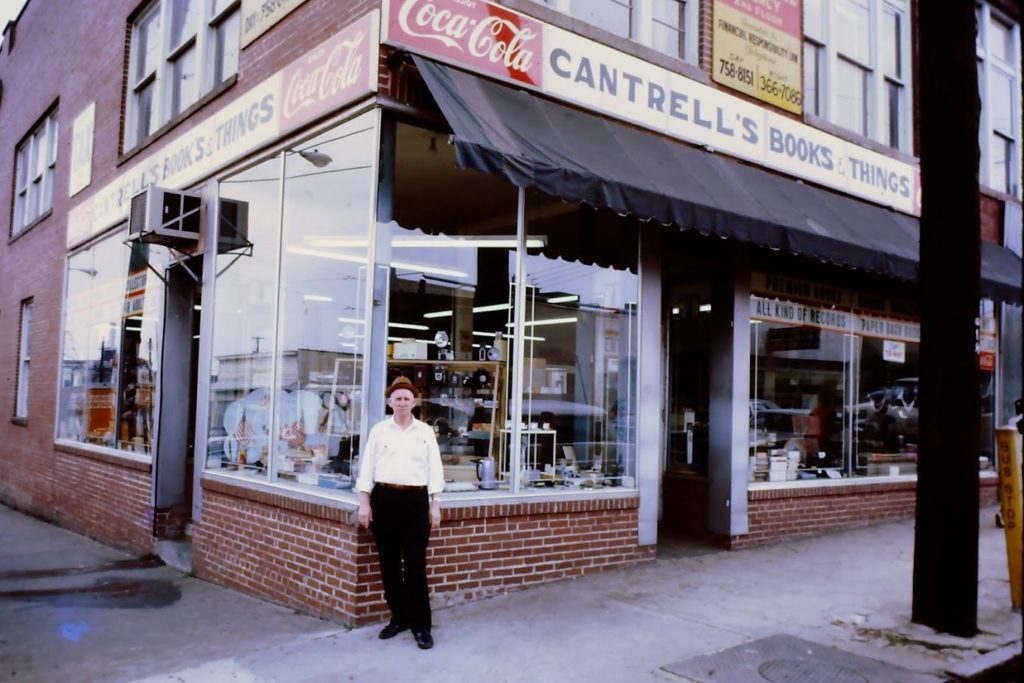“I’m trying to reach someone related to Clifford Cantrell…C.E. Cantrell,” I said through the phone, softly enough so as not to sound like a bill collector, telemarketer, or law enforcement agent making a next-of-kin call.
“I’m his son,” answered the kind voice of Rachman Cantrell, 74, from his collectibles shop, Bothell Jewelers & Collectibles, all the way across the country in Bothell, WA.
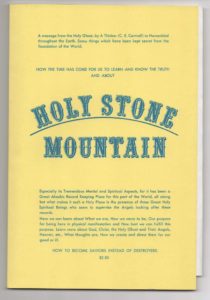 I must’ve sounded oddly euphoric over the phone, but I’d just spent numerous hours over the course of a few days researching his rather eccentric and entrepreneurial father, Clifford, the author and publisher of the brief autobiographical spiritual tract Holy Stone Mountain (c. 1975), but had turned up next to nothing until that moment. I’d gleaned from online mentions here and there that for many decades he’d been the proprietor of several iterations of a long bygone used and collectibles store in Metro Atlanta (in fact the first ever such "swap" bookstore in Atlanta)—from Jonesboro to the West End to Decatur—variously called C.E. Cantrell’s Quick Picture Studio (he was quite the amateur photographer), Cantrell’s Oddity Shop, Cantrell’s Books & Oddities, Cantrell’s Swap Sell & Buy Service Storehouse of Used Bargains, Cantrell’s Book Swapping Center, and the last known storefront, Cantrell’s Books & Things in Decatur. He was probably regarded by many not only as a self-made man but as a bit of a curiosity himself for his singular zeal about Stone Mountain that verged on messianic. He believed God was inside the mountain and described it with utmost sincerity and some urgency in his 62-page book.
I must’ve sounded oddly euphoric over the phone, but I’d just spent numerous hours over the course of a few days researching his rather eccentric and entrepreneurial father, Clifford, the author and publisher of the brief autobiographical spiritual tract Holy Stone Mountain (c. 1975), but had turned up next to nothing until that moment. I’d gleaned from online mentions here and there that for many decades he’d been the proprietor of several iterations of a long bygone used and collectibles store in Metro Atlanta (in fact the first ever such "swap" bookstore in Atlanta)—from Jonesboro to the West End to Decatur—variously called C.E. Cantrell’s Quick Picture Studio (he was quite the amateur photographer), Cantrell’s Oddity Shop, Cantrell’s Books & Oddities, Cantrell’s Swap Sell & Buy Service Storehouse of Used Bargains, Cantrell’s Book Swapping Center, and the last known storefront, Cantrell’s Books & Things in Decatur. He was probably regarded by many not only as a self-made man but as a bit of a curiosity himself for his singular zeal about Stone Mountain that verged on messianic. He believed God was inside the mountain and described it with utmost sincerity and some urgency in his 62-page book.
But for a man prescient enough to self-publish a memoir of sorts forty-two years ago and sell it from his own shop, C.E. “The Thinker” Cantrell, as he referred to himself on the book's author page, was also simply of another era, leaving behind no digital footprint and remaining very much a mystery to someone in the year 2017 trying to find out whatever became of him. Social media, Web 2.0, and the proliferation of digital content as we know it today are really only a phenomenon of the past decade. We’re already well into Web 3.0., and spoiled as we are with lots of accessible data, it really shouldn't have surprised me that my online inquiries into a man two generations removed turned up no photos of him or his stores in their different locations through the years.
Several leads on Ancestry.com intrigued me, but I couldn’t be quite sure. After too many hours at the computer, genealogy entries either all start looking good or all suddenly seem dubious, and it became as dizzying as reading through a multi-page menu of a typical Greek diner in New York. However, I narrowed it down to one Clifford Edward Cantrell born in Lincoln County, Georgia on September 7, 1915, but what threw me for a loop was that this Clifford Cantrell passed away last June all the way out in Redmond, WA—just months shy of his 101st birthday! I also was glad my online sleuthing led me to this thesis out of American University about the unfortunate Disneyfication of Stone Mountain, which really resonates with many of my views on this site (it also mentions Holy Stone Mountain, which is among a varied stack of books about the mountain). So when I came across a listing for Holy Stone Mountain being sold out of Washington by Bothell Jewelers & Collectibles — The Internet Antique Shop, I knew I was closer. I tried the online contact form three times but got an error, so I Googled the store, picked up the phone, and was beside myself that I had indeed found the right C.E. Cantrell. Lucky for me, Rachman answered his phone and was so generous with his time.
I had so many questions. Was there an obituary? Did he have other children? Was he divorced? Was he a happy person? Did he go to a particular church? How long did he live in Washington state, and did he ever end up living in Stone Mountain like he’d once dreamed of doing in Holy Stone Mountain? Did he still talk about Stone Mountain in his final years? And what in heaven’s name did he eat to live to be almost 101!
I wasn’t simply interested in Cantrell’s "fascinating" spiritual vision of the mountain as a contribution to the folkloric local record or as another example for this website of the mountain serving as a muse or stage for so many. Though I do hope C.E. would get a kick out of this website for how it focuses on a variety of cultures, ethnicities, and spiritual faiths converging upon the mountain he regarded as so holy. Who knows, maybe modern-day C.E. would be a blogger (or would have an Ebay store)! I also had a distinct sense that with his enduring his stores, which always had a place for books, Cantrell figured into Atlanta’s historic literary landscape, even if but in a small way. Having worked within the book industry since before graduating with an English degree from UGA in 1999, and then for years after at a book publisher in New York, I saw firsthand how Amazon.com and chain bookstores edged out a good many independent bookstores over the past two decades. While such market shifts likely never had any bearing on a store like Cantrell’s, run almost like a perpetual yard sale, it still made me sad that a humble operation like Cantrell’s Books & Things, kept in operation by a man with a fourth-grade education and a family to support might be lost to time altogether. Surely every town has its own Dickensian curiosity shop or a version of (a non-scary) Needful Things (which I read in high school) worthy of remembrance.
Growing up in Stone Mountain, my siblings and I regularly accompanied our mother, a voracious reader, to Aspen Book Shop on Memorial Drive, where she would trade in copies of P.D. James paperbacks for Robert Ludlums. It’s also where my father went to buy every book about Egypt on his way home from work that time in 9th grade I had to write a paper for Mrs. Maxwell’s class after waiting until the last minute. One summer in high school I discovered the literary paradise that was Atlanta’s Oxford Books in the Peachtree Battle Shopping Center with my sister—even had my first coffee at The Cup and Chaucer cafe there—and later, still in high school, my friends and I saw live music at Oxford, Too on Pharr Rd.
In college I worked a holiday season at Book Peddlar’s, a discount bookstore in the Beechwood Shopping Center, during a time when Athens still had Jackson Street Books, Blue Moon Books, and The Old Black Dog Bookstore on Lumpkin Street (I saw Coleman Barks read there and Terry Kay as a student!) — and now that I think about it, what reminds me most of Cantrell’s stores were the two businesses that Athens local Paul Thomas ran downtown for decades that sold vintage magazines, postcards, used books, and more—Oracle and later X-Ray Café. I still have books I bought from his store when I was 19 and 20 years old (a biography of Antonin Artaud of all things!), and I honestly think I mostly stumbled in there to have conversations with Paul, who now continues to sell online but spends more time working on his art these days, but does still maintain a a shelf with lots of cool used books at the Jittery Joe's on the Eastside. He even recalls Cantrell's. "My mom and dad took me to one of the Cantrell's Used Book & Comic stores when I was a kid...loved the place, but can't remember where it was...someplace around Atlanta...I was obsessed with old comic books...and they were cheap back then," he said.
Today Athens boasts two (now just one; edited 6/30/24) locations of Avid Bookshop, and Atlanta’s fortunate to still have several indie bookstore favorites like A Cappella Books, which has been going strong for 27 years, and Charis Books & More, which is “celebrating 42 years of feminism and independent voices.” No matter if the bookstores move to different blocks or other parts of the city, as Cantrell's often did, they're still part of the Metro Atlanta community. I mentioned to Rachman Cantrell that I think Cantrell's Books & Things, in its final Decatur location, would've fit right in with the AJC Decatur Book Festival now in its 11th year. Here's a look back at Atlanta's literary landscape in 1980.
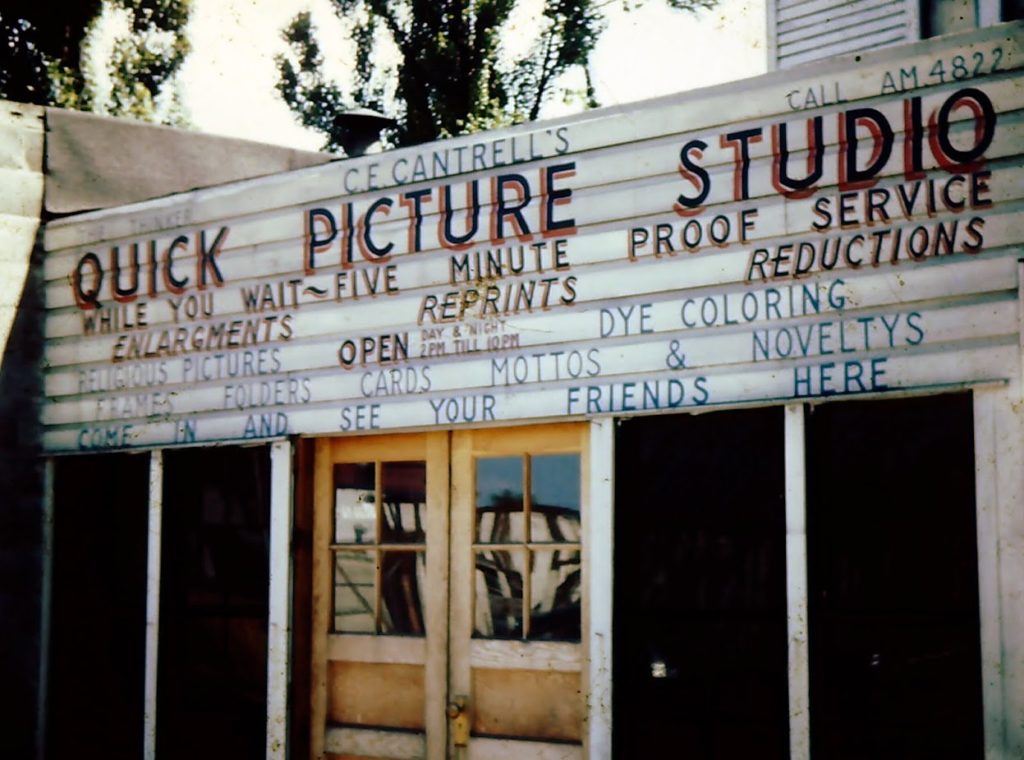
C.E. Cantrell's Atlanta photography studio mid-1940s. One of his daughter's is now a successful photographer in Los Angeles. 
Rachman and I spoke for over an hour, and it left me feeling like I’d found lost treasure. Yes, C.E. had once been married to Lillian Velma Cato, who passed away in 1995, and the couple had four children before divorcing sometime in the 1970s. Two sons and two daughters, Amy and Grace, that grew up first around Jonesboro and then in Atlanta’s West End, attending Joseph E. Brown High School (now a middle school). C.E.’s youngest son, Alfred, 60, still lives in Metro Atlanta, in Smyrna. Though divorced, Lillian still later ran a Cantrell’s used books outpost in East Point, GA, and before that she took in a great deal of sewing and clothing making. C.E. and Lillian never remarried, but they did go on to date new people.
The more we talked, I increasingly felt that Rachman had taken after his dad a great deal. His birth name was actually David, but he later chose the spiritual name Rachman around the time he became a practitioner of Subud in 1963, which has taken him all over the world (I had never heard of it before yesterday!). Clearly spiritually inclined like his father, who was a life-long student of the Bible in lieu of a formal education, Rachman also took up the family business of selling collectibles and even had four children of his own—plus six grandchildren. One thing father and son didn't necessarily have in common? C.E. Cantrell’s dietary staple. “He was set in his ways with his eating," said Rachman. "What he would do, he would buy canned foods of all kinds and mix them together in a big pot and eat that.” No one's more amazed than his family that he lived over a century eating like that.
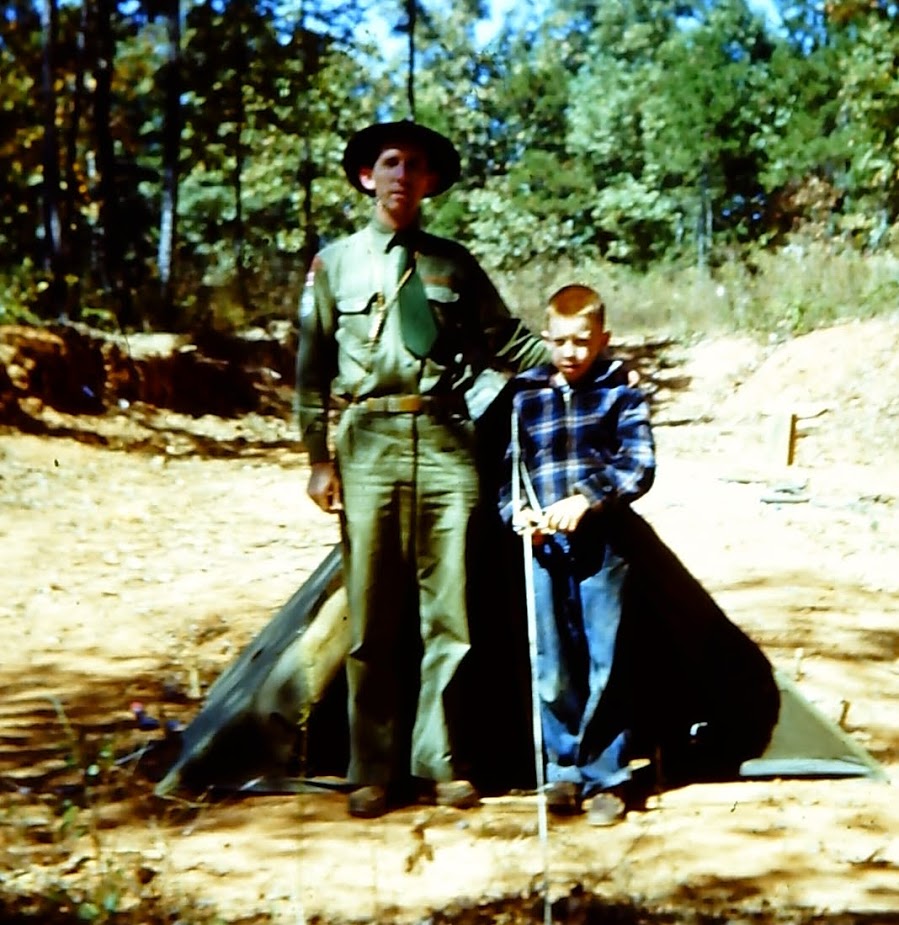
Father and son camping with the Boy Scouts near the mountain (Rachman not yet a scout) 
Rachman explained that his father had come to live with him in Washington for about ten years before his physical problems necessitated moving to an assisted living facility in Redmond, WA. His declining health also inhibited his spiritual state at that point. When I asked if C.E. had ever attended a church of a particular denomination, Rachman said that his father’s spiritual beliefs “were beyond what most people in churches talk about” but seemed to recall that he had been involved in a church in Stone Mountain at one point. He was also a member of Atlanta's Foundation of Truth. I didn't get really get much deeper than a basic biographical sketch of C.E. Cantrell, but being able to illustrate some of his various storefronts and to remind mountain-goers about the message he wanted to share in Holy Stone Mountain is perhaps more important right now—and maybe this story will even continue later. C.E. Cantrell never wrote another book as he’d hoped aloud in the pages of Holy Stone Mountain, and there was not an obituary or a burial when he passed, but there’s no mistaking that he was a deeply interesting man and that Holy Stone Mountain lives on as a vintage collectible—one man's Celestine Prophecy of its day—as does the memory of Cantrell’s Books & Things in Atlanta, the last location of which was inside Kudzu Antiques on E. Ponce de Leon Avenue in Decatur. And it’s entirely possible that C.E. Cantrell’s ashes will one day yet get that beloved view of Stone Mountain for which he so longed. His spirit is likely already there.
A special thank you to Tony Paris, who sent me a message on my birthday last month asking me if I had a copy of Holy Stone Mountain. I really feel initiated now. And thank you to Rachman Cantrell for sharing some of his father's historic photos.

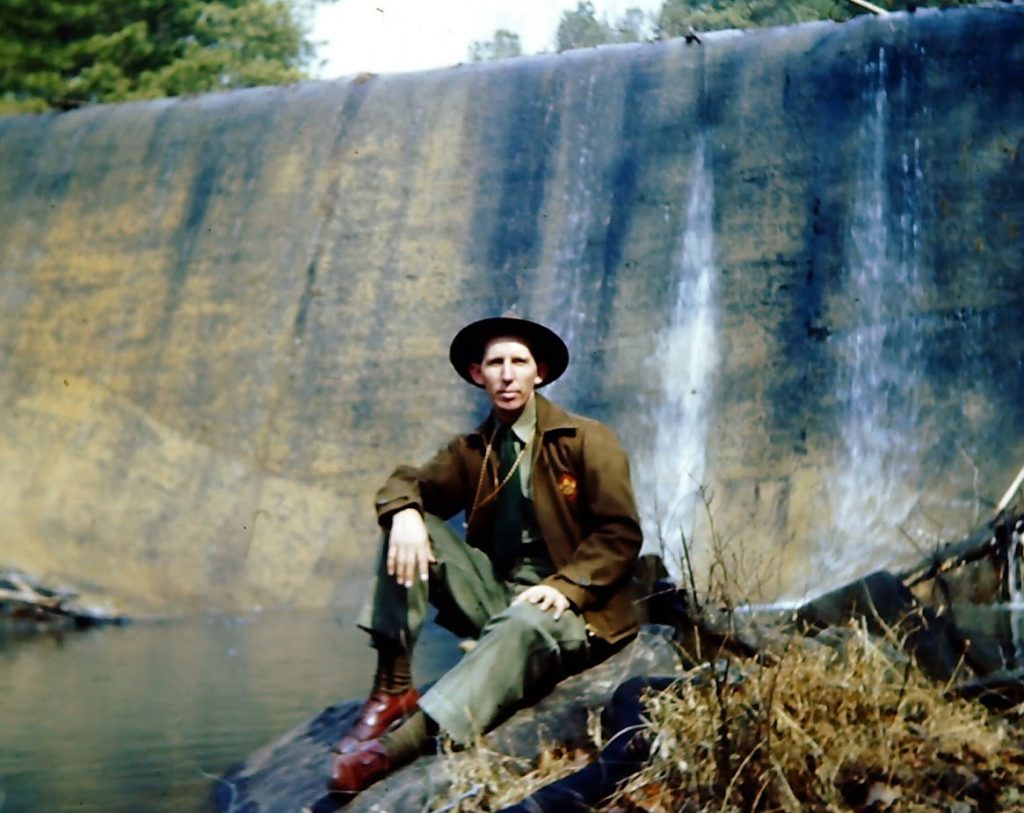

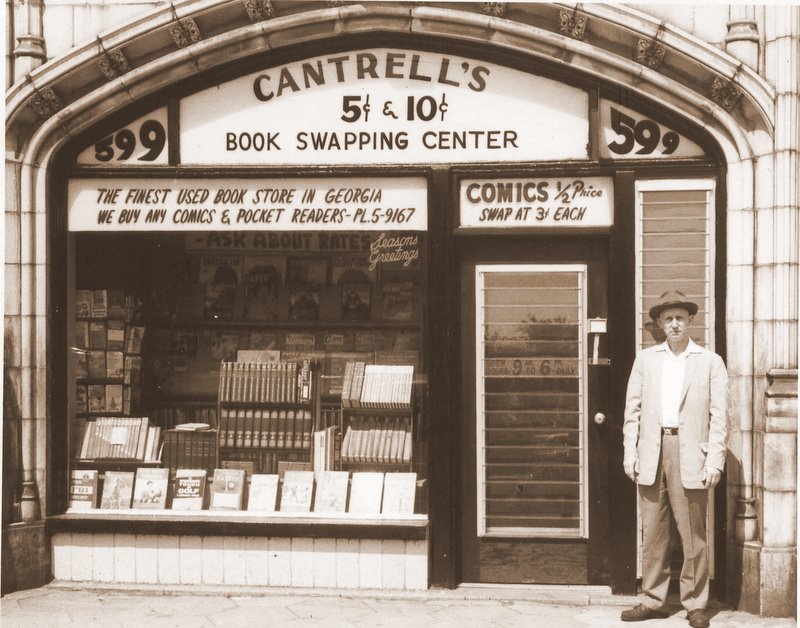
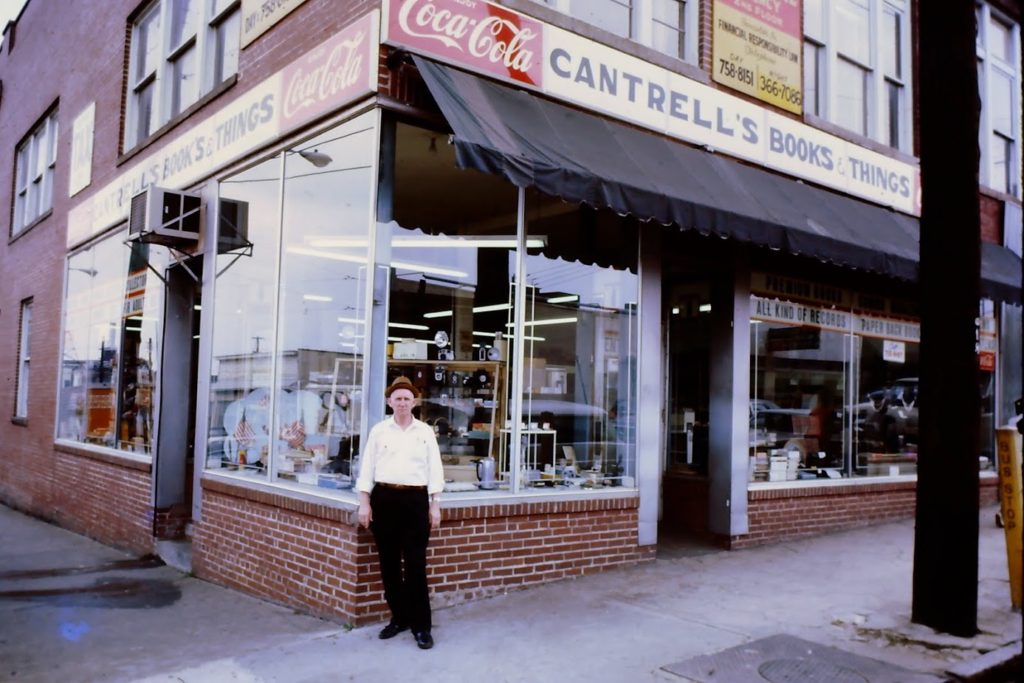
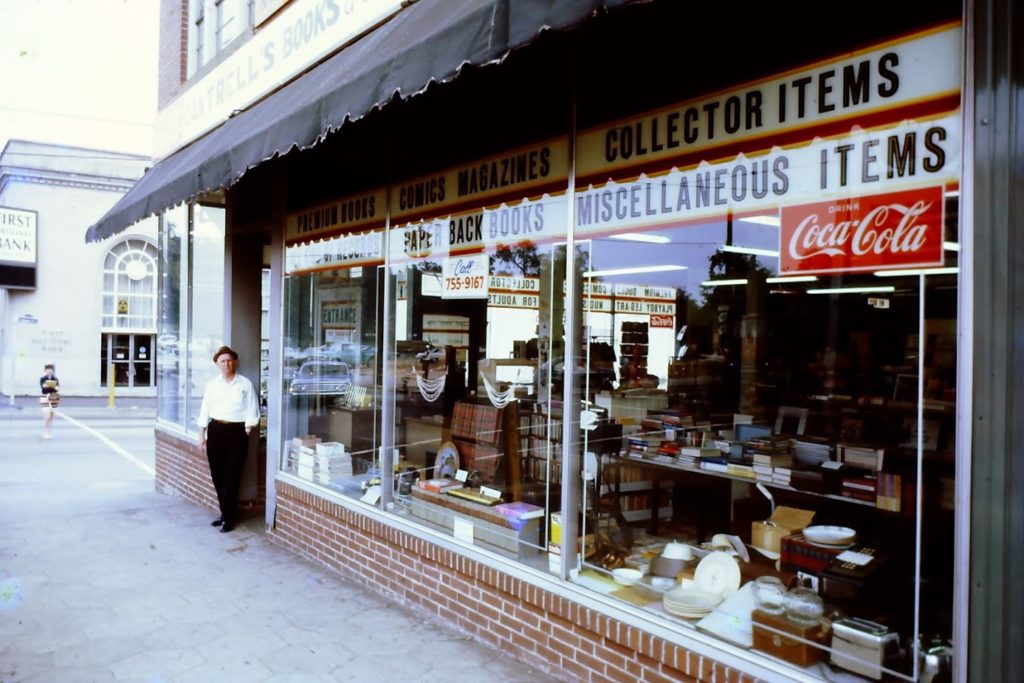
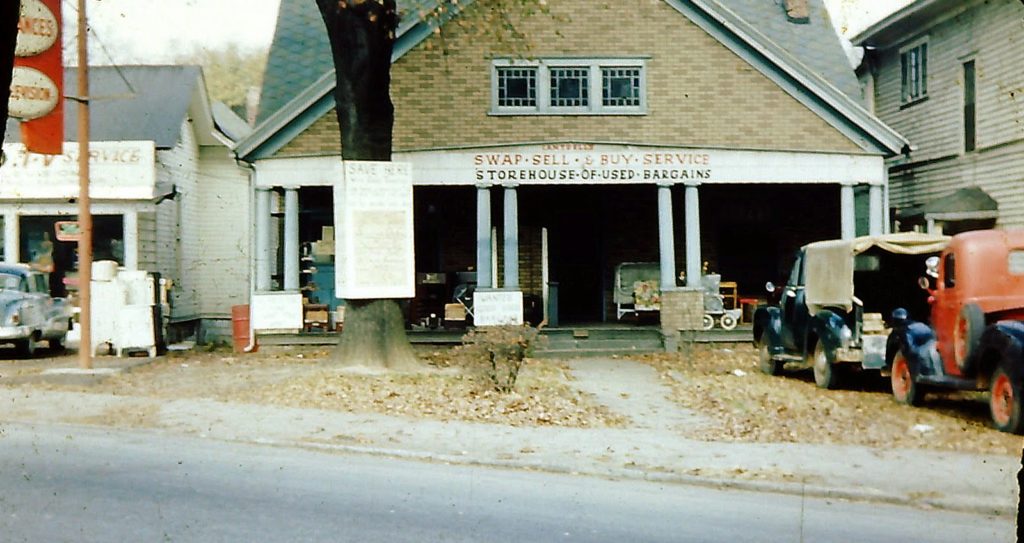
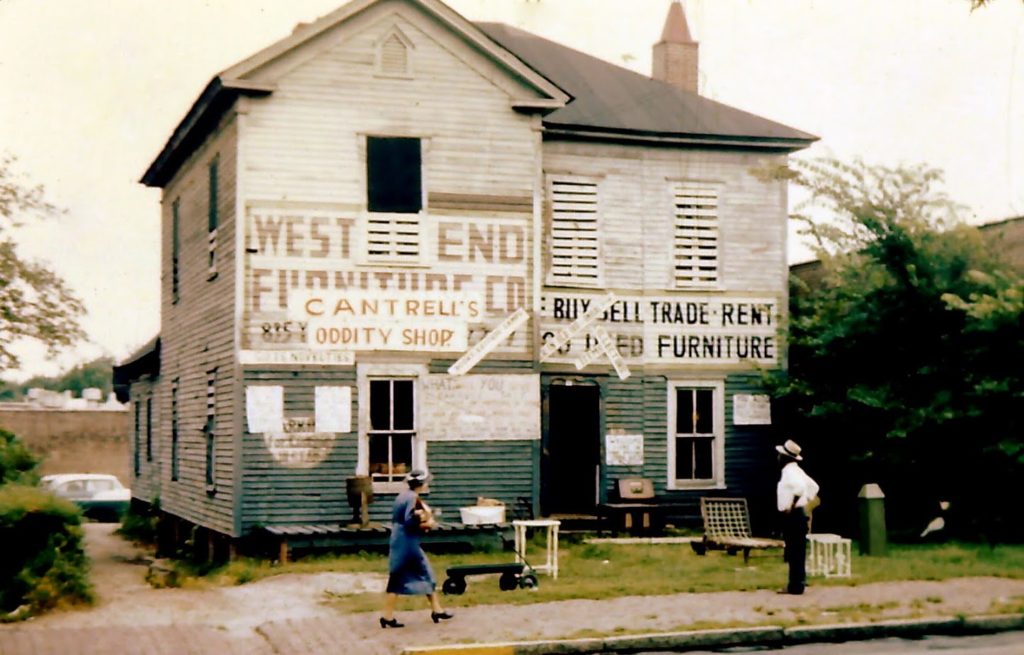
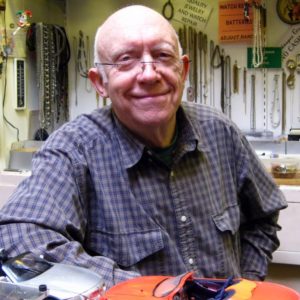
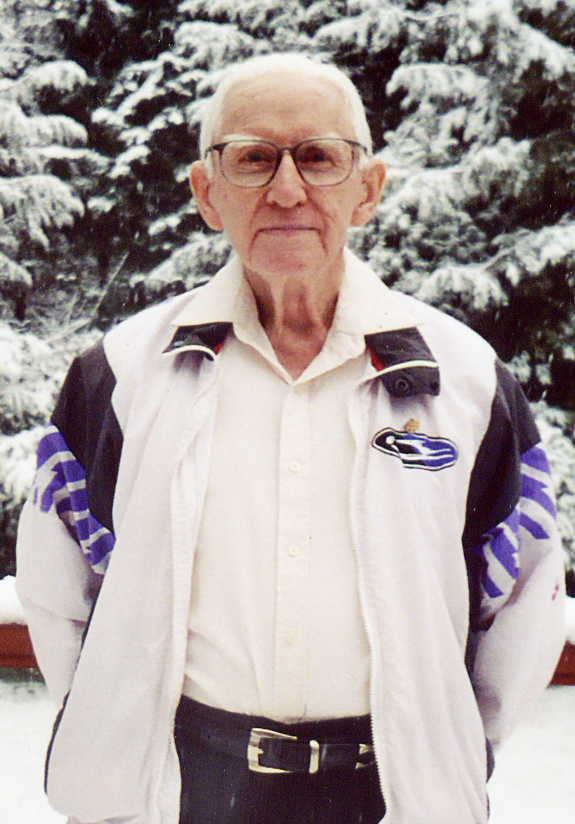
 : wsbn55565, Cantrell's Book SWAP Shop in Atlanta, WSB-TV newsfilm collection, reel 1522, 50:16/54:53, Walter J. Brown Media Archives and Peabody Awards Collection, The University of Georgia Libraries, Athens, Georgia
: wsbn55565, Cantrell's Book SWAP Shop in Atlanta, WSB-TV newsfilm collection, reel 1522, 50:16/54:53, Walter J. Brown Media Archives and Peabody Awards Collection, The University of Georgia Libraries, Athens, Georgia